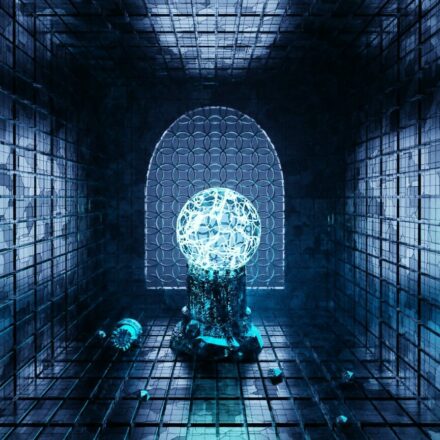By Matt Baker, senior vice president of corporate strategy, Dell Technologies
Quantum computing, once the stuff of science fiction, has made its debut into everyday conversation. The talk is somewhat fantastical to those who haven’t been deeply involved, but quantum is starting to gain its footing within the worlds of tech and business.
In quantum’s early days, people likely thought that it would one day replace classical computing. Why not? It’s faster, more powerful and smarter. This zero-sum viewpoint is historically common in the tech industry; thinking that new technologies will replace older ones (e.g., cloud versus on-prem). And it’s oftentimes the case. One hundred years ago we computed with gears, then vacuum tubes, then these new things called transistors. It might be tempting to think that quantum computing will replace all of it, but nothing could be further from the truth.
“Quantum computing is no longer conceptual, it’s real and it is powering innovation around the world.”
—Matt Baker, senior vice president of corporate strategy, Dell Technologies
Quantum is not a zero-sum game
Quantum computation has the potential to address problems that can’t be tackled today by even the most powerful supercomputers. Classical computing calculates with transistors using either 0 or 1, while quantum calculates with qubits, which can be 0 and 1 at the same time. A quantum computer can be exponentially more powerful than classical, performing calculations out of reach for your trusty CPU.
Right now, algorithms are being developed, computational problems are being addressed and verticals are experimenting with quantum systems (including chemistry and biology, materials science, aeronautics and automotive, new materials development and so much more).
This is complex and exciting stuff, but, in its simplest terms, quantum is just another accelerator. Tomorrow’s systems are going to include quantum accelerators and a lot of the classical gear that we count on today.
Let’s face it, quantum is weird but important
I’m a guy who is happiest out on the open water. One of my favorite metaphors to describe emerging technologies is a “tide that floats all boats.” The tech ecosystem is a series of rising tides, and quantum is going to be a flood tide that floats the entire industry.
To quote Dell Technologies’ Senior Distinguished Engineer Mike Robillard, who co-presented a session at Dell Tech World 2022 focused on navigating the quantumverse, “Quantum doesn’t work without classic infrastructure.” In fact, as the capabilities of QPUs grow (e.g., more qubits), more classical infrastructure is needed to support it. To solve interesting problems, we’ll need servers, storage and networking, as well as more and different accelerators. Quantum accelerators will be just another tool in the toolbox.
What makes quantum seem akin to a sci-fi or fantastical conception is that it is a brand-new form of computation, based upon the motions and interactions of sub-atomic particles or on macroscopic quantum phenomena. Although this undoubtedly changes the game, it’s important to note that quantum will not replace classical computing; it will augment it. The physics works, but the physical machines and software that implement it are still in development.
The bottom line is that quantum is weird, but it works. And we want to ensure that CIOs and business leaders realize the importance of having a quantum strategy by design and not by default (like we have advised with cloud). It could be decades before we see quantum in broad use, as challenges remain in harnessing the weirdness of the qubit. We need time to understand all the quirks in order to create a ubiquitously useful system— but it’s coming.
Quantum spoiler alert: It’s a happy ending
Quantum computing is no longer conceptual, it’s real and it is powering innovation around the world. Companies are developing the systems, people are being trained and use cases are being explored across multiple industries.
It won’t be the answer for every application but digging into its capabilities starts now. As my colleague and Dell Technologies’ Global CTO John Roese has said, “At this stage in the technology’s development, it is possible to recreate key parts of the quantum environment on classical resources, making the technology more accessible for IT leaders who want to explore it, as well as those who have already taken their first steps and want to refine their existing algorithms.”
In fact, Dell has built a hybrid classical-quantum system that allows customers to experiment with classical-quantum computation all the way from simulation to true hybrid computation. Giving customers the flexibility to seamlessly navigate from learning to experimentation (with real apps) to productization, all on a Dell-driven system, we can showcase how quantum becomes an accelerator for applications and how classical continues to play an instrumental role.
This is fascinating stuff that, even in 2022, feels like a natural fit for a sci-fi tale of mind-blowing science and technology. Its importance will only grow as use cases become more concrete and the physical machines and software continue to evolve. But quantum computing won’t be replacing your CPU. If anything, you’ll need more classical gear to leverage its promise. The good news is: This sci-fi story ends more like a happy rom-com than an alien takeover.
Lead image by Anshita Nair/Unsplash

